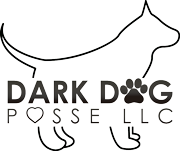Photo courtesy of Jongsun Lee and Unsplash.com.
We’ve been hearing a lot lately about the upcoming solar eclipse—which will take place on Monday, April 8, 2024—and how it could affect your pets. We did a little digging and here’s what we discovered.
One concern is that your pets may look at the eclipse while it is happening, potentially burning their retinas in the process. According to comments we found from several different veterinarians, this is unlikely, but the risk still exists.
Dogs and cats generally don’t like bright lights and will avoid looking at the sun unless something flies overhead, catching your pets’ attention, and their gaze follows the flying object into direct sunlight. This could potentially happen during the eclipse, too. In bright sunlight, your dog or cats’ observation of the bird or butterfly will quickly break off. During the eclipse, it is possible that they may continue to watch whatever is flying by since there won’t be a bright light to force them to look away.
Another concern is that your pets may panic if it suddenly gets dark, instead of the gradual darkening they experience during sundown. They may also be sensitive to the drop in temperature that may occur as the sun is shaded by the moon. According to what we read, this may only affect a small percentage of animals that have hypersensitivities to changes in their environment, especially those that don’t like loud noises.
How can you help your pet through this rare astronomical event? Even though only a small portion of the United States will see a full solar eclipse, there will still be a slight darkening during the day that your pets may not even notice. Sort of like when a cloud passes over on a sunny day.
Still, the best advice we heard is to play it safe by keeping your pets indoors while the eclipse is taking place. You may want to turn on some lights and even put the TV or music on for background noise to distract them. If they normally nap during the day, hopefully they’ll get through the entire event without any fuss.
How long should you keep them inside to be safe? Depending on where you live, the timing will be slightly different. According to the National Aeronautics and Space Administration (NASA), the total eclipse will hit Mexico’s Pacific coast at around 11:07 a.m. Pacific Daylight Time. It will continue to cross Mexico and into the United States, tracking through Texas, Oklahoma, Arkansas, Missouri, Kentucky, Illinois, Indiana, Ohio, Pennsylvania, New York, Vermont, New Hampshire, and Maine.
If you’re in Dallas, the eclipse will begin at 12:23 p.m. Central Daylight Time. Totality will begin at 1:40 p.m., the maximum eclipse will occur at 1:42 p.m., totality will conclude at 1:44 p.m., and the eclipse will be completely over by 3:02 p.m. For a map of the projected path and a timetable for when the eclipse will be happening and where, visit NASA’s 2024 Total Eclipse: When & Where page.
At Dark Dog Posse’s headquarters in Hampton, Virginia, we’re only going to see about 80 percent of the full eclipse, meaning we won’t experience total darkness. The chance of clouds is expected to be around 54 percent, so it’s likely the sun will be blocked most of the time anyway. Nonetheless, what we’ll see of the eclipse is supposed to happen between 2:04 p.m. and 4:32 p.m. Eastern Daylight Time.
Using the link above, you can type in your zip code to see what percentage of the eclipse you will see where you live, and what time it will be occurring. We urge you to note your times and to keep an eye on your pets throughout the course of the eclipse. If you’ll be away from your home while it is happening, you might want to follow the advice above by leaving on a light and maybe the TV while you’re gone. If you have concerns, you may want to check with your veterinarian for further advice.
If you will be around to observe this amazing phenomena, NASA also has some advice on how you can safely do so on their Eclipse Safety page. Don’t forget that ultraviolet rays will still be a factor, even when the sun is partially blocked, so be sure to remember your sunscreen.

